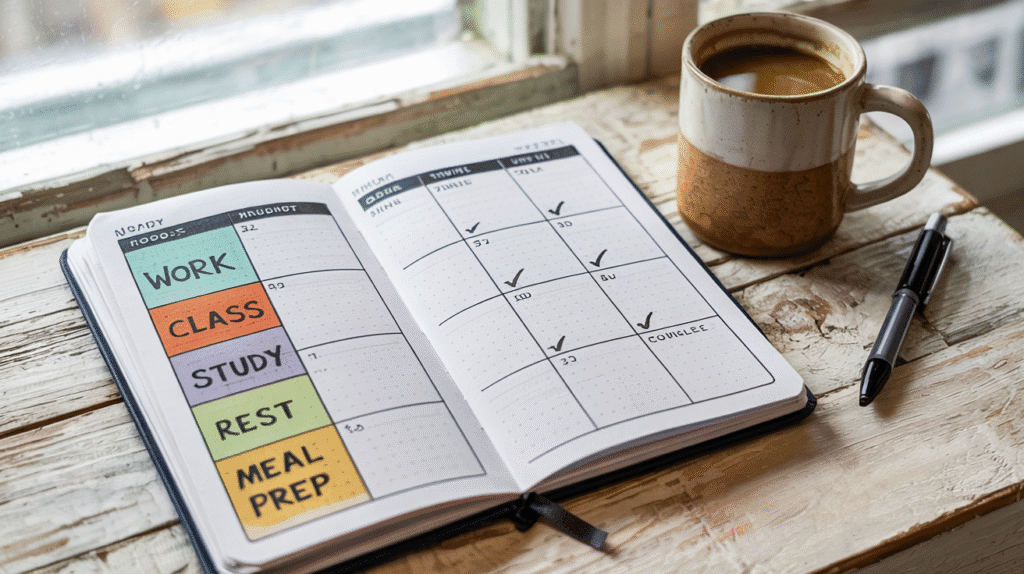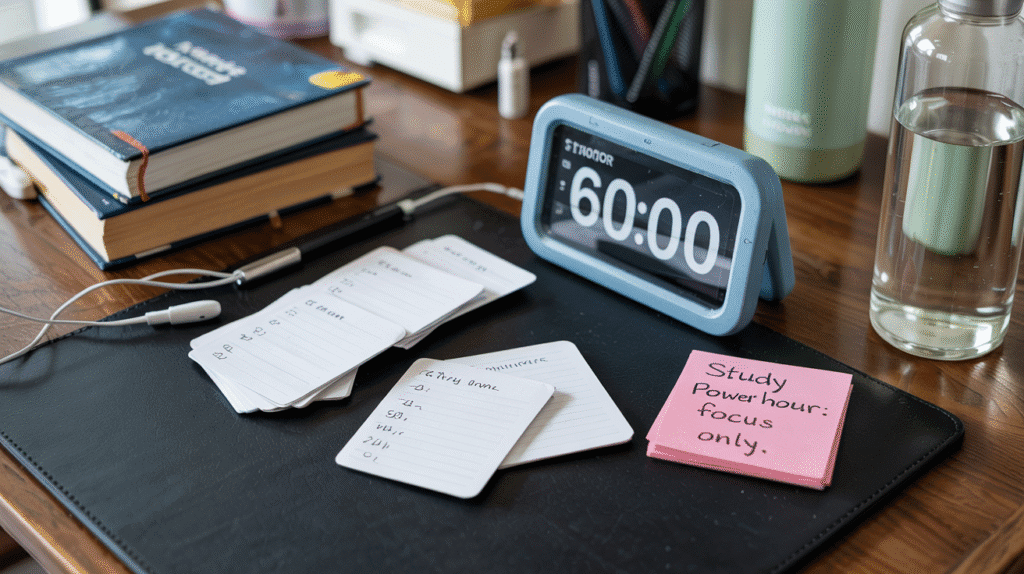Balancing grad school and a full-time job is like juggling fire—while riding a bike—on a tightrope.
You’re managing work deadlines, academic papers, and trying to have a personal life (or at least a few hours of sleep). It’s a lot.
But with the right structure, it’s possible to stay productive without burning out.
Here are realistic time management strategies for graduate students who are working full-time.
📅 Tip #1: Use Weekly Time Blocking to Stay Ahead
Trying to “wing it” doesn’t work when your week is packed.
Every Sunday (or your preferred planning day), block out:
- Class times
- Study windows
- Work hours
- Life tasks (laundry, meals, rest)
Group similar tasks together and identify energy peaks.
This helps you see the big picture—and avoid last-minute scrambles.

📚 Tip #2: Batch Academic Tasks Into Study Power Hours
Instead of cramming in short bursts, carve out focused study blocks:
- One hour of deep reading
- One session for writing or research
- One short review block midweek
Choose distraction-free times—like early mornings or weekend afternoons—and protect that time like an appointment.
🧱 Tip #3: Simplify Notes and Avoid Over-Studying
You don’t need to rewrite the textbook.
Use lightweight tools that help you learn efficiently, such as:
- Flashcards (digital or paper)
- Voice memos
- One-page summaries
Aim to understand and retain—not impress anyone with note aesthetics.

📞 Tip #4: Communicate Your Boundaries at Work and School
Let your professors and supervisors know you’re balancing both worlds.
Try:
- Blocking off your calendar during study blocks
- Letting your team know you won’t reply after a certain hour
- Asking for deadline clarity early
Boundaries help set expectations and reduce guilt.
💬 Tip #5: Prioritize Self-Care Without Guilt
Your brain needs fuel.
Sleep, nutrition, rest, and breaks aren’t extras—they’re tools.
When you rest well, you:
- Focus faster
- Retain more
- Handle stress better
Even a 10-minute break can reboot your mind.
It’s not about doing everything—it’s about doing what matters, sustainably.

Daniel Carter believes that small daily changes lead to extraordinary results. Through simple and effective strategies, he inspires readers to take control of their routines, overcome procrastination, and unlock their full potential.











